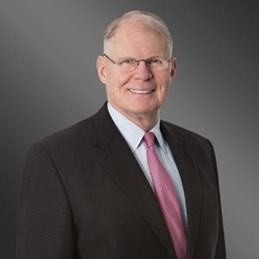Altenburg was commissioned as a United States Army officer after law school. He was assigned to the office of the Center Judge Advocate, John F. Kennedy Special Warfare Center and School, Fort Bragg, North Carolina. After serving as a criminal defense attorney, he was the Judge Advocate, 5th Special Forces Group, and Prosecutor for the JFK Center for almost four years. He subsequently served as the Chief Prosecutor at XVIII Airborne Corps before moving to Germany for service with the 3rd Armored Division, again as Chief Prosecutor for three years.
He authored a training film, “NCO Authority: Destroying the Myths”, that became mandatory viewing by all Army noncommissioned officers for several years and continues in use more than 25 years after production. Following tours in the Pentagon Office of the Judge Advocate General and the Office of the Judge Advocate in Heidelberg, Germany, he was the Staff Judge Advocate, 1st Armored Division, including deployment to Desert Storm in 1991. He helped demonstrate the ability of Army units to maintain proper discipline in a combat theatre when his office tried three general courts-martial near the front lines the day before the ground assault into Iraq.
As the Staff Judge Advocate of the XVIII Airborne Corps at Fort Bragg he deployed to south Florida in 1992 for humanitarian relief operations after Hurricane Andrew. He deployed to Haiti with Joint Task Force 180 in 1994 for peacekeeping operations. During his three years at Fort Bragg, he was instrumental in resolving land use issues and protecting the Army’s interests by working closely with the Fayetteville City Council and the Cumberland County Board of Commissioners. He played a key negotiating and coordinating role in effecting the eventual purchase of 10,000 acres (40 km²) of additional training land contiguous to Fort Bragg.
He served for 28 years as a lawyer in the Army. From 1997 to 2001, he was the Deputy Judge Advocate General of the Army. Altenburg retired at the rank of Major General. His service was marked by extensive experience in military justice, international law and operations law. He was one of several key JAG Corps leaders who helped transform the practice of law in the Army by insisting that lawyers acquire soldier skills and immerse themselves in their clients’ business to become more effective advocates.


